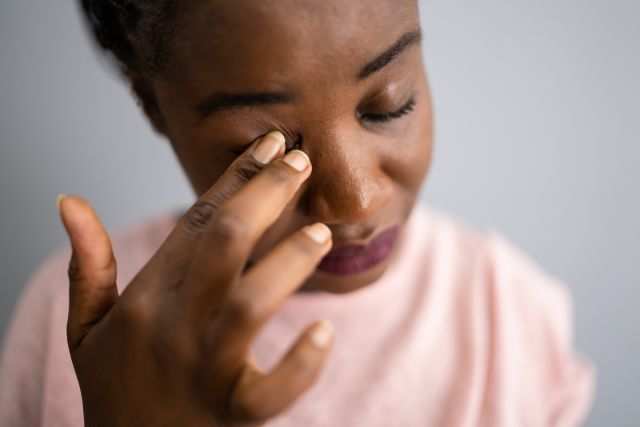Updated on September 13, 2023.
Pink eye, also known as conjunctivitis, is a contagious infection often associated with kids. And while it is fairly common among children, adults can and do get it, too. All told, there are an estimated 6 million cases of pink eye in the United States each year.
Learn more about this condition, how it spreads, and how it can be treated, with insights from Rolando Toyos, MD, ophthalmologist and medical director and founder of Toyos Clinic in Tennessee and New York City.
What is pink eye?
Pink eye is the common term for conjunctivitis, which is inflammation and swelling of the thin outer skin of the eye. The most common form of pink eye is caused by a viral or bacterial infection. Symptoms usually start within 24 hours of exposure. Allergies or certain irritants, such as soap, may also cause it.
What are the symptoms?
Symptoms include redness around the eyes, itchiness, irritation, a burning sensation, or feeling that there’s something in the eye. Eyelids may be swollen, there may be more tearing than usual, and vision may be blurry. It can take up to two weeks for all symptoms to resolve.
How is pink eye spread?
Pink eye is very contagious, which is why it's recommended that someone who has it separate themselves from others.
Conjunctivitis is spread much the same way colds are spread, which is why it’s thought to be more common in kids. The virus may be on their hands, and because kids tend to touch everything, including their eyes, the infection spreads readily.
If one eye has a viral infection, it can easily spread to the other eye. That’s why patients are encouraged to wash their hands frequently, to avoid touching their eyes, and to use paper towels to dry their face after washing so that the towel can be disposed of.
How is pink eye treated?
If it’s a viral infection, there is no antibiotic you can take to make it go away. The most you can do is manage the symptoms by using artificial tears and cold compresses. Sometimes an allergy drop may relieve some of the redness and itching.
Over-the-counter drops intended to relieve everyday redness are not recommended. These products make the redness worse after you stop using the drops and won’t give much relief. Since there is no immediate treatment, waiting out pink eye requires patience.
Should I see my healthcare provider (HCP) if I have pink eye symptoms?
A small percentage of people get bacterial pink eye, which is why you should see your HCP if you have any telltale symptoms. For especially severe cases or those showing no improvement, they can take a swab to see if it’s viral or bacterial. If it’s bacterial an antibiotic will be prescribed, but most of the time a virus causes pink eye.
Can conjunctivitis cause any long-term vision problems?
It will not cause any decrease in vision unless you also have an infection of the cornea, which leaves scars. This condition is rare in patients with pink eye.







